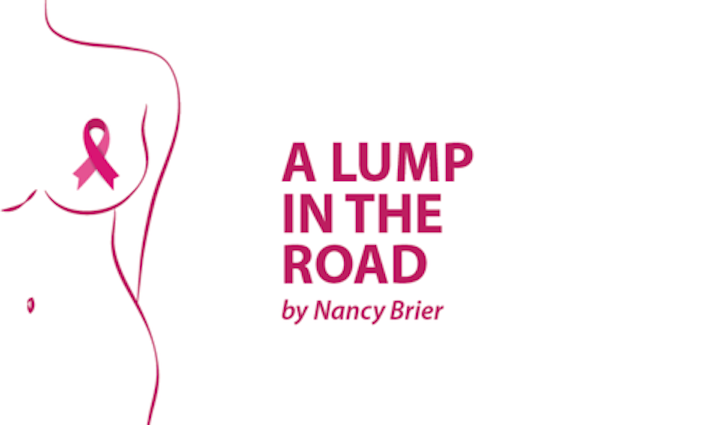I remember the first time I saw my dad’s face after it was disfigured by disease. His right eyelid was closed, his mouth drooped, and the skin of his cheek leaked off his face as if it would billow in a good wind. We all assumed he’d had a stroke in the night, but his other symptoms didn’t match. Myasthenia gravis, a rare degenerative disease, struck out of nowhere.
Gravis. From the Latin “grave.” My dad was gravely ill.
It happened the day after he and I drove from New York to San Francisco in my little red Sentra. I’d met a guy on an airplane, quit my job, and moved on a hunch that it was love. My dad helped with the drive.
Back then, my mom’s memory was just starting to slip. She’d forget words sometimes. “Put that device in the cupboard,” she’d say, for example, pointing to a box of tea. Or, “I need a head wrap,” when she meant to say “hat.”
Alzheimer’s tiptoes slowly and relentlessly, but in my mom’s case, it never stole her sweet disposition. At least she never had to know about my breast cancer. By the time I was diagnosed, she didn’t recognize my face or remember what cancer is.
These diseases suck.
So many illnesses ravage and disfigure our bodies, eating their victims from the inside out. Brain diseases go after our minds, mocking our mental acuities and reminding us that even the brilliant are not immune from nature.
But there’s another malady we don’t often acknowledge, one that’s frequently a silent, unmentioned companion to serious illnesses, and it can be a killer, too.
Unlike physical or brain afflictions, depression feels like a disease of the soul. Sometimes I wonder if I was born with it or if it was thrust upon me during the trauma of my earliest years. I masked an unyielding isolation, a searing “otherness” with a cheerful face. In fact, I even received the “Smile Award” at summer camp when I was a kid; my gray cloud was an expertly kept secret. I should have trained for the CIA.
As a young woman, I finally got help but never considered medication. During cancer treatment, though, my oncologist suggested a low-dose antidepressant. “It’ll help you sleep,” she said, “and sleep will help you heal.”
I felt somewhat ashamed when I put the first tablet of venlafaxine on my tongue and washed it down, as if I should have the fortitude to push through the dark night of my soul without meds. But four weeks later, when I found myself laughing, it dawned on me that the drugs were working. I’ve missed this. I thought. Maybe I should have been taking these all along.
For me, though, drugs came with a nasty side effect. Nearly every night, I dreamed of violence and came to dread the prospect of sleep. On the other hand, the better mood I experienced in waking hours made nighttime angst worth it. Sort of.
Ultimately, my body acclimated, or maybe I just got lucky — those nightmares finally went away. But shortly thereafter, depression came back. “Let’s up your dose,” my doc suggested.
It didn’t sound like a great idea, and a physician friend warned me that those types of meds rewire the brain. Finally, insurance made the decision for me: not covered. Cancer has cost my family enough, I thought. I’ll get by.
Then my husband convinced me there’s another way. He must have unwrapped a chemistry set one Christmas and never forgotten the thrill of creating explosions from household supplies. “I’ll help you.”
After weeks of scouring the internet, he discovered supplements that changed my life. Gary found herbs to pick me up and others to calm me down, but on his way to the cash register with his concoctions, he stumbled on Sunny Mood, a supplement that contains all the ingredients he wanted in a single tablet. I take it in the morning, and in the evening, I take L-tryptophan, a product with natural antidepressants and sleep enhancements. I’m happier and haven’t had a single side effect.
Depression is a complicated issue. It responds to diet, exercise, mindfulness, and companionship. All my life, I’ve used these tools to make it bearable.
But when cancer took my strength and depression asserted itself in my life once again, I’m glad I accepted the help I needed.
That epic journey I took with my dad in my modest red Sentra all those years ago is a lasting memory. We sneaked in a great experience before disease took its toll, and I scored the love of my life.
That’s right — the guy who found my herbal remedy is the same one I met on that plane. And that’s a love story with many chapters to come.
If you or someone you know needs help, you can reach the Lifeline at 1-800-273-8255, or the Crisis Text Line by texting “HOME” to 741-741, twenty-four hours a day, 7 days a week.
***
Note: Breast Cancer News is strictly a news and information website about the disease. It does not provide medical advice, diagnosis, or treatment. This content is not intended to be a substitute for professional medical advice, diagnosis, or treatment. Always seek the advice of your physician or other qualified health provider with any questions you may have regarding a medical condition. Never disregard professional medical advice or delay in seeking it because of something you have read on this website. The opinions expressed in this column are not those of Breast Cancer News, or its parent company, BioNews Services, and are intended to spark discussion about issues pertaining to breast cancer.



This was a good and easy to follow read. I am thankful she wrote about her experience, and her situation with mother and father and what a great help her Husband, or love partner is. No drugs for depression, exercise makes us feel better. I hope she keeps getting better with less drugs. Exercise is number one and saying prayers and eating well are two and three.
I often write about personal issues in this column – it sort of comes with the territory of agreeing to provide a patient perspective on disease. I genuinely hope that readers can benefit from learning about what has worked, and not worked, for me in cancer treatment and all its ramifications. And I couldn’t agree more that the best remedies for depression – and so many other maladies – are exercise, prayer, and nutrition. Thanks, Madlen, for sharing your input.